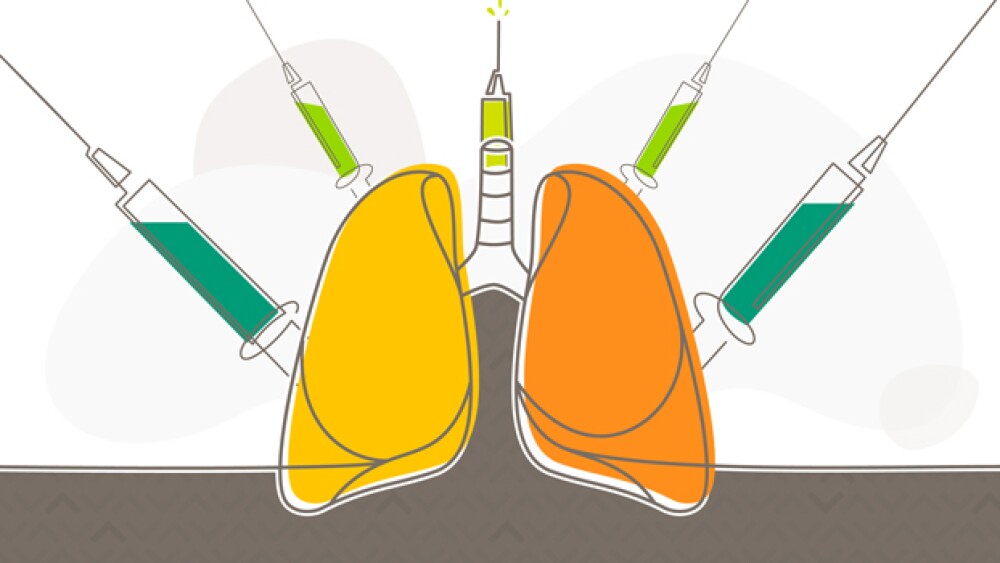New data show the biologic significantly reduced exacerbations in chronic obstructive pulmonary disease, confirming positive results from an earlier trial.
Pictured: Illustration of lungs with syringes/Nicole Bean for BioSpace
Regeneron and Sanofi are touting more positive news for Dupixent’s treatment of moderate-to-severe chronic obstructive pulmonary disease, or COPD, with evidence of type 2 inflammation.
On Monday, the pharmas announced that the Phase III trial, known as NOTUS, had shown Dupixent reduced patient exacerbations by 34% over 52 weeks compared with placebo with a p-value of 0.0002. According to Regeneron, the trial aims to confirm the positive results from the BOREAS Phase III trial that were announced earlier in the year.
The NOTUS trial also found that Dupixent induced “rapid and significant improvements in lung function” by week 12 that held through 52 weeks. Lung function improved by an average of 139 mL from baseline at week 12 for patients on Dupixent compared to 57 mL in the placebo group, with the benefit being maintained at week 52. This metric had a p-value of 0.0001 at 12 weeks.
According to Regeneron, the rates of adverse events were 67% for Dupixent and 66% for the placebo group. Common adverse events for the drug included COVID-19, nasopharyngitis and headache. Adverse events leading to death were 2.6% in the Dupixent group and 1.5% in the placebo group.
“These results demonstrate the important role of type 2 inflammation in yet another chronic and debilitating disease, and the ability of Dupixent to address this inflammation,” George Yancopoulos, board co-chair, president and CSO at Regeneron, said in a statement.
The companies plan to submit the results from the trial and the earlier BOREAS trial to the FDA by the end of the year, according to the statement. Meanwhile, the EMA is reviewing the application for Dupixent’s treatment of uncontrolled COPD with type 2 inflammation. Regeneron also noted that conversations with other regulatory authorities worldwide are ongoing.
Naimish Patel, Sanofi’s head of global development for immunology and inflammation, noted that its second program in COPD, itepekimab, may have data revealed in 2025.
The earlier BOREAS trial showed that Dupixent led to a 30% drop in moderate or severe acute COPD exacerbations over 52 weeks and was better at improving lung function than a placebo. Regeneron also posted a 9.7-point improvement in health-related quality of life from baseline at 52 weeks.
Tyler Patchen is a staff writer at BioSpace. You can reach him at tyler.patchen@biospace.com. Follow him on LinkedIn.
Correction (November 27): This story has been updated from its original version to correct certain figures related to the results of the clinical trials. BioSpace regrets the error.






